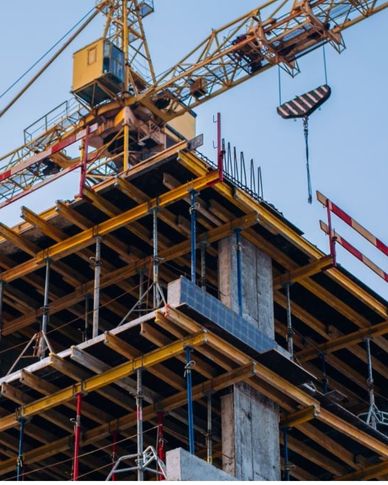The construction industry in South Africa has had a challenging couple of years, from the loss of jobs to the closing down or unbundling of large players in the construction sector. For this reason, the economic recovery and rebuilding plan announced by President Ramaphosa will go a long way in aiding the recovery of the sector and the creation of employment opportunities. A key focus of the recovery and restructure plan is around a massive infrastructure rollout through a robust pipeline of infrastructure projects which is of course good news for the construction industry in South Africa. Since the beginning of 2022, we have seen a surge in optimism from construction companies who are beginning to declare higher estimated turnover figures for the upcoming year than they have in the past several years.
The positive sentiment is not only focused on government spending but is also fueled by more investment from the private sector, which we are seeing mainly in the renewable energy space, the mining sector and the technology sector. The growth from the renewable energy sector is driven by a need for cheaper and more reliable power to drive foreign direct investment. The mining sector’s investment growth is driven by expansion projects in mines which are geared towards increasing outputs from previously untapped mineral sources. On the technology front, we are seeing more data centers being built given the need for the decentralized storage of data, thanks to the advent of cloud storage technologies.
The reconstruction and recovery plan will enable significant expansion, but it will also come with a unique set of challenges. The construction and engineering sector has also observed a shrinking workforce and the loss of skilled labor, which may put additional pressure on the existing workforce when it comes to delivering these pipeline projects timeously and at a high-quality. This means that there will be a greater need for contractors to share work and sub-contract some of their functions on their projects, which will provide smaller to medium contractors with the opportunity to grow and more importantly create employment opportunities within the sector.
A major challenge will be the expedition of projects and shortening of timelines to deliver projects in a more time-effective manner, which may have an impact on the quality of work delivered and an increase in human error. In the past, we have seen that with some sub-contracted works - there is a risk that some of the controls that are present at main contractor level may not necessarily be present at sub-contractor level. We may see an increase of defective workmanship claims, injury or damage to third party property during the execution of these expedited projects. This may impact pricing of insurance negatively with an increase in premiums due to a higher perceived risk. However, we as SHA will endeavor to mitigate the premium impact on our clients as best as possible, as we understand that they are in a rebuilding phase and are looking for ways to mitigate additional expenses.
In conclusion, spirits are high in the construction sector as this sector will be at the center of the rebuilding of the country’s infrastructure and ultimately, the economy too.
